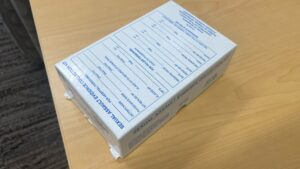BCA says it’s done testing all sex assault kits from 2015 inventory

(KSTP) – Eight years after the state asked local law enforcement agencies to send in all untested sex assault kits, all of those kits have been tested, the state announced Thursday.
The Minnesota Bureau of Criminal Apprehension (BCA) says it received a total of 2,366 sexual assault kits from local law enforcement related to the agency’s 2015 inventory. Another 1,116 kits weren’t submitted because they were restricted, the victim recanted or due to other investigative reasons, the agency says. Additionally, around 1,700 more unsubmitted kits were reported by Minneapolis police in 2019 and are being tested separately.
While the inventory process took place in 2015, the BCA notes that it got federal funding and started the testing process in 2019. The Sexual Assault Kit Initiative (SAKI) Project notes the state got $2 million in each of the 2018, 2019 and 2020 fiscal years for testing.
Backlogs in sex assault kit testing have long been an issue, with the BCA saying earlier this year that its average turnaround is 110 days from the time a kit arrives until it finishes testing. As of this spring, at least 563 sex assault kits were still waiting to be tested by the BCA.
Of the extra 1,700 kits reported in 2019 by Minneapolis police, the BCA says 1,339 of those have now been tested and the remaining ones will be completed by early next year.
While there is still work to be done, Thursday’s announcement is a milestone in the effort to get all submitted kits tested.
“The BCA continues to look for ways to provide improved processes for victim survivors, local law enforcement agencies and in our own laboratories so that we can best serve victim survivors and the agencies investigating the incidents,” BCA Superintendent Drew Evans said. “These projects and steps illustrate our commitment to that continual improvement.”
Of the more than 2,300 kits tested from the 2015 inventory, the BCA says 357 had DNA profiles that matched people in the agency’s convicted offender database and around 130 involved people who hadn’t previously been identified in cases.
The BCA acknowledged that demand for forensic testing is high, and a greater focus on the issue has led the agency to improve its efforts to increase kit-testing capacity.
Additionally, state lawmakers approved $8 million over the next two years for the agency to further reduce testing turnaround times. Lawmakers also considered implementing a 90-day turnaround time requirement for sex assault kits but the legislation that was signed into law stopped short of that, only saying the agency “must strive” to meet that goal, although lawmakers also directed the BCA to prioritize sex assault kit testing with other violent crimes, tell submitting law enforcement agencies when a kit isn’t tested within 90 days and a timeframe for testing completion. Additionally, the state’s public safety commissioner will have to submit annual reports on sex assault kit testing times and any barriers to having a testing turnaround within 90 days, with the first report due by Jan. 1, 2025.
The good news is the BCA says it expects to reach a 90-day turnaround time for sex assault kits this fall.
Recently, the BCA has also started a new sex assault kit tracking program to provide online information to victim-survivors about the status of their kit. The agency also started securely storing all restricted sex assault kits — those that victim-survivors opt to not have tested — in 2021 and has received 1,348 restricted kits since that time.